Science Consistently Shows Conversion Therapy to be Harmful and Ineffective
The Iowa Psychological Association Public Education Committee has the sole purpose of bringing to the public’s awareness psychological research and science in about issues relevant to Iowans. The purpose of this committee is to inform and educate based on scientific research. With that in mind, we share the following regarding the science on sexual orientation and the lack of science supporting sexual reorientation/conversion therapy.
In 1990, Dr. Bryant Welch, American Psychological Association Executive Director stated, “Research findings suggest that efforts to repair homosexuals (sic) are nothing more than social prejudice garbed in psychological accoutrements.” Since then, mainstream medical and psychological health associations have taken unequivocal stances against what is called conversion, reparative, or reorientations therapies due to lack of scientific evidence to support positive impact of these interventions, and the plethora of evidence documenting harm. These organizations include: American Academy of Child & Adolescent Psychiatry, American Academy of Family Physicians, American Academy of Nursing, American Academy of Pediatrics, American Association of Marriage & Family Therapy, American College of Physicians, American Counseling Association, American Medical Association, American Medical Student Association, American Psychiatric Association, American Psychoanalytic Association, American Psychological Association, American School Health Association, American School Counselor Association, American School Health Association, National Association of Social Workers, Pan American Health Organization, School Social Work Association of America, and others.
These organizations, representing the majority of U.S. medical and psychological health professionals, have taken this stance not because of political positioning, but because, as the American Psychological Association (2021) noted:
The APA affirms that scientific evidence and clinical experience indicate that sexual orientation change efforts (SOCE) put individuals at significant risk of harm;
APA encourages individuals, families, health professionals, and organizations to avoid SOCE;
APA affirms that same-gender and multiple-gender attraction, feelings, and behavior are normal variations in human sexuality, being LGBTQ+ is not a mental disorder, and APA opposes portrayals of sexual minorities as mentally ill because of their sexual orientation;
APA opposes making claims that sexual orientation can be changed through SOCE and;
APA, because of evidence of harm and lack of evidence of efficacy, supports public policies and legislation that oppose, prohibit, or aim to reduce SOCE, heterosexism, and monosexism and that increase support for sexual orientation diversity.
These organizations have taken stances validating the inherent worth, dignity, and validity of sexual/affectional orientation due to the lack of conclusive empirical evidence that supports that any one sexual/affectional orientation is less or more mentally and physically healthy. In fact, the data is so consistent, these organizations had no other choice but to take these stances to uphold their own foundations of evidence-based decision making. Those who continue to advocate for reorientation continue to perpetuate the reductionist, bipolarity construct of sexual/affectional orientation that science left behind 50 years ago when the American Psychiatric Association declassified homosexuality as a mental health concern in the Diagnostic and Statistical Manual of Mental Disorders. A review of the history of this decision can be found here.
The faulty assumptions imbued into the claims of reorientation are numerous and include:
- Sexual/affectional orientation is behavior that can be changed. This approach ignores copious evidence connoting the multimodality of sexual/affectional orientation, including identity in research across the world.
- Sexual/affectional orientation is limited LGBQ people. Sexual/affectional orientation is descriptive of all people, but Straight people are not expected to engage in reorientation. Research on what science understands about the development sexual orientation and cultural expression of sexual orientation can be found in the following: Biodevelopment of Same-Sex Sexual Orientation , Biological Research on Development of Sexual Orientation, Human Sexual Orientation, Sexual Orientation, Controversy, and Science, Stability and Change in Sexual Orientation
- Religion condemns LGBQ orientation. Reorientation could be sought for religious choice. However, people who identify as LGBQ do not have to abdicate their right to participate in religious practice. Major U.S religions support LGBQ orientations include: American Baptist Church; Disciples of Christ; Episcopal Church; Metropolitan Community Church; Presbyterian Church, USA; Reform Judaism; Society of Friends; Unitarian Universalist Church; Buddhism, United Church of Christ, Congregational, and others.
- Research supports reorientation therapy. Research supporting reorientation therapy has been criticized for problems with poor methodology, biased participant selection, statistical analyses, and inadequate outcome measures. Unethical behavior, sexual abuse, deception, and theological malpractice are also rife throughout this literature. The confines here do not allow for detailing all of this research, though objective reviews can be found from infinitely wide sources including the Minnesota Department of Health, Cornell University, to the Government of the United Kingdom.
- Straight is the standard. There is a systematic bias toward straight orientation and a faulty mainstay assertion within reparative therapy is that people who are LGBQ are undeveloped, regressed, and fixated. Journal of Personality and Social Psychologyand Behavioral Sciences
- Reorientation therapies only help. An overwhelming number of studies note the harmful impact, ethical violations of, or ineffectiveness of conversion therapy. For a review see J Med Regul. 2016; 102(2): 7–12, and the Oxford Journal of Legal Studies
These are a few of the many faulty and specious assumptions that undergird this movement. The leading national organizations who represent the majority of U.S. licensed medical and psychological providers, clearly state that as there is no illness, there is no cure. Legal prohibitions against such practices, which cannot sufficiently document positive outcomes over risk for harm, exist in 27 states+ D.C. and this number grows annually. It is time, as it is with all medical and mental health matters, to listen to the evidence and move on from practices whose predominant basis is bias, poor science, historical limitations, and societal prejudice.
Submitted by:
The Iowa Psychological Association Public Education Committee, ipa@iowapsychology.org
The Iowa Psychological Association Public Education Committee has the sole purpose of bringing to the public’s awareness psychological research and science in about issues relevant to Iowans. The purpose of this committee is to inform and educate based on scientific research.

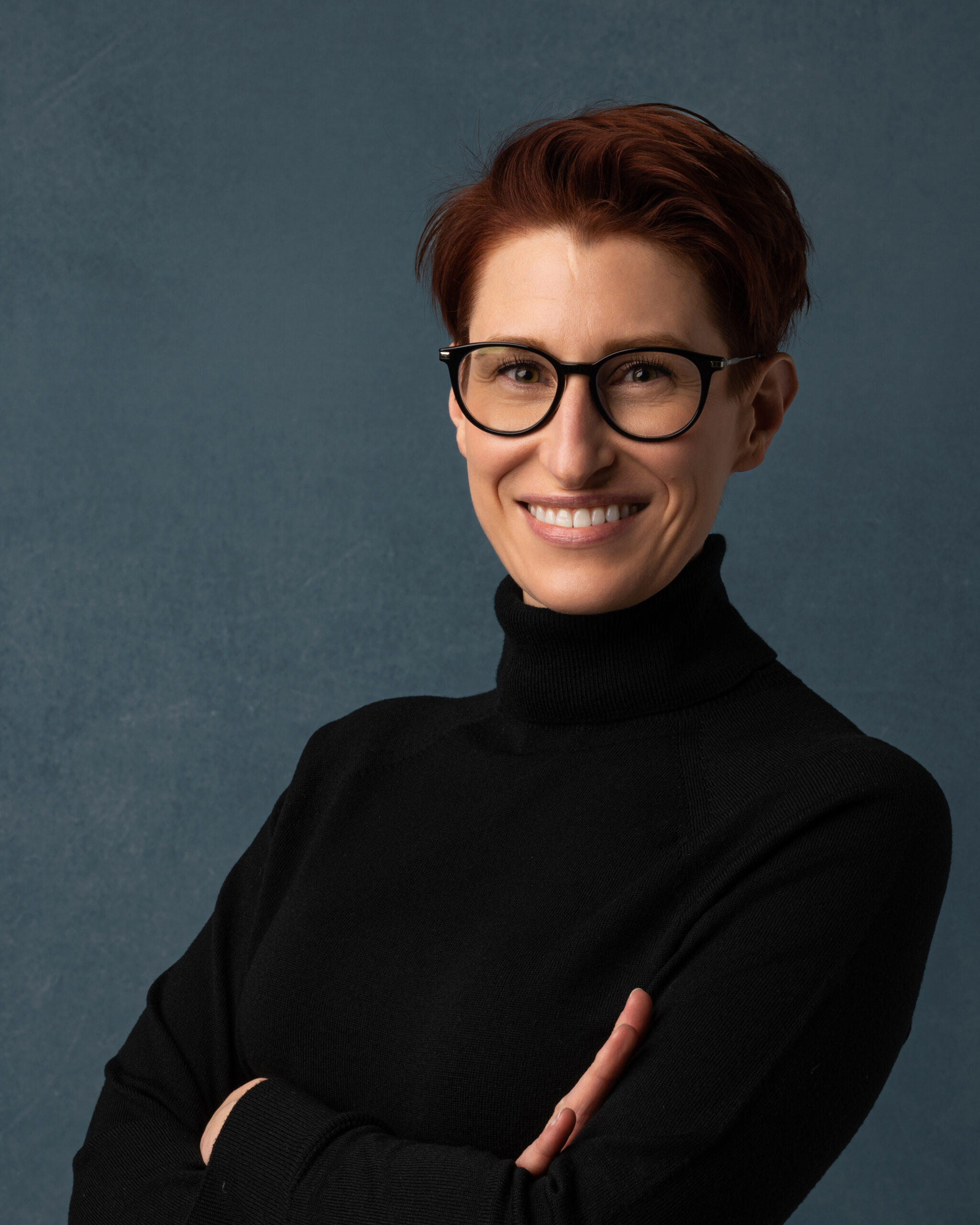
 IPA’s mission is to promote the science and practice of psychology for the benefit of all Iowans. Our volunteer leaders and paid contractors have been working hard in 2023 to carry out that mission in alignment with our
IPA’s mission is to promote the science and practice of psychology for the benefit of all Iowans. Our volunteer leaders and paid contractors have been working hard in 2023 to carry out that mission in alignment with our 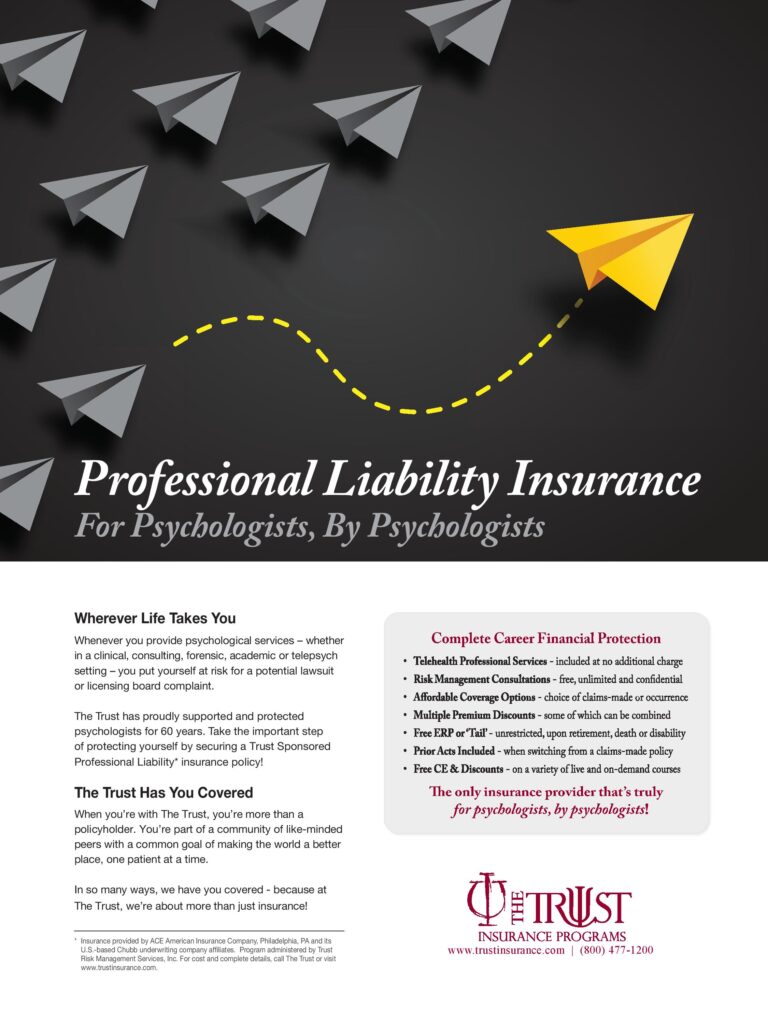
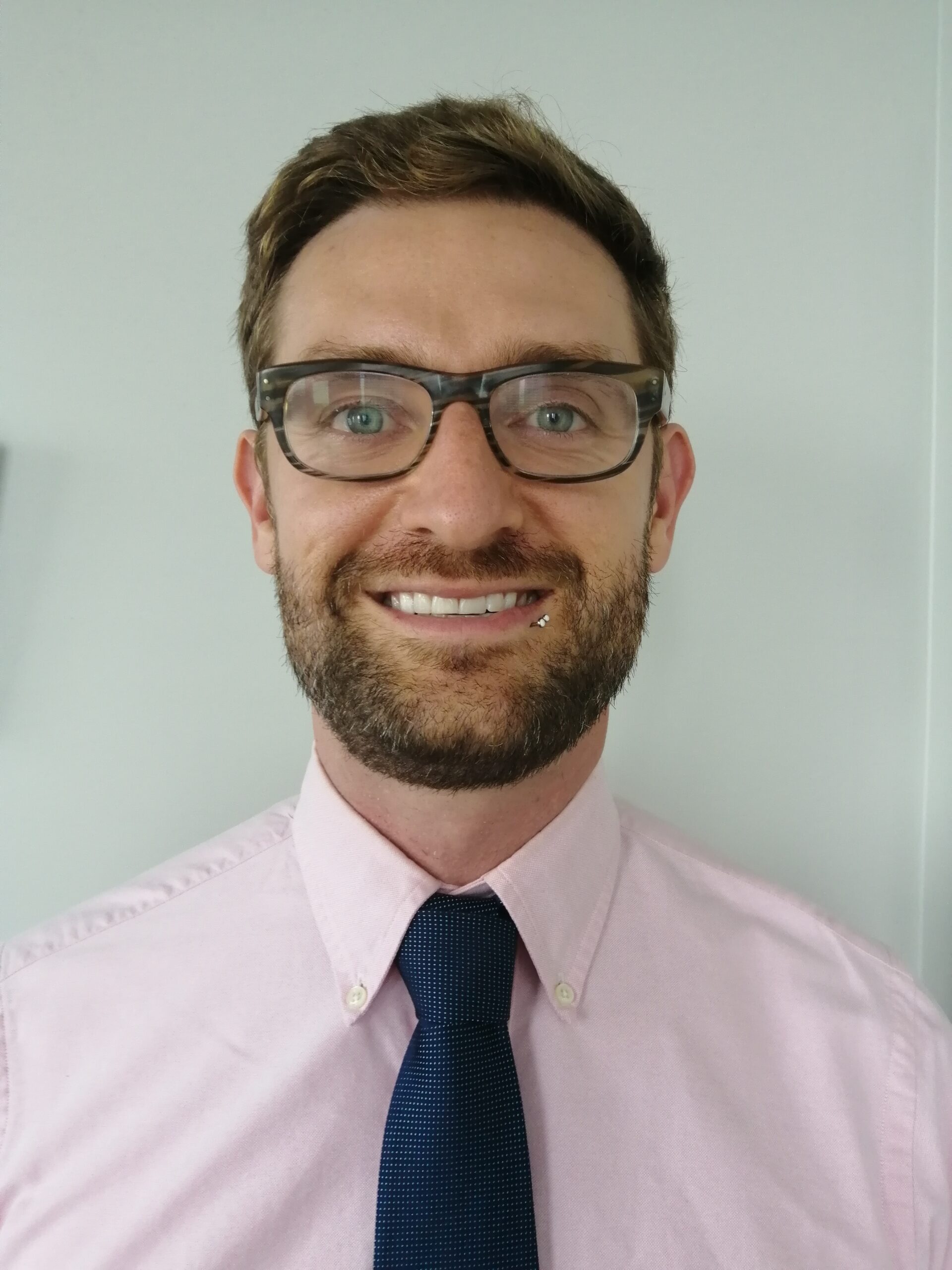

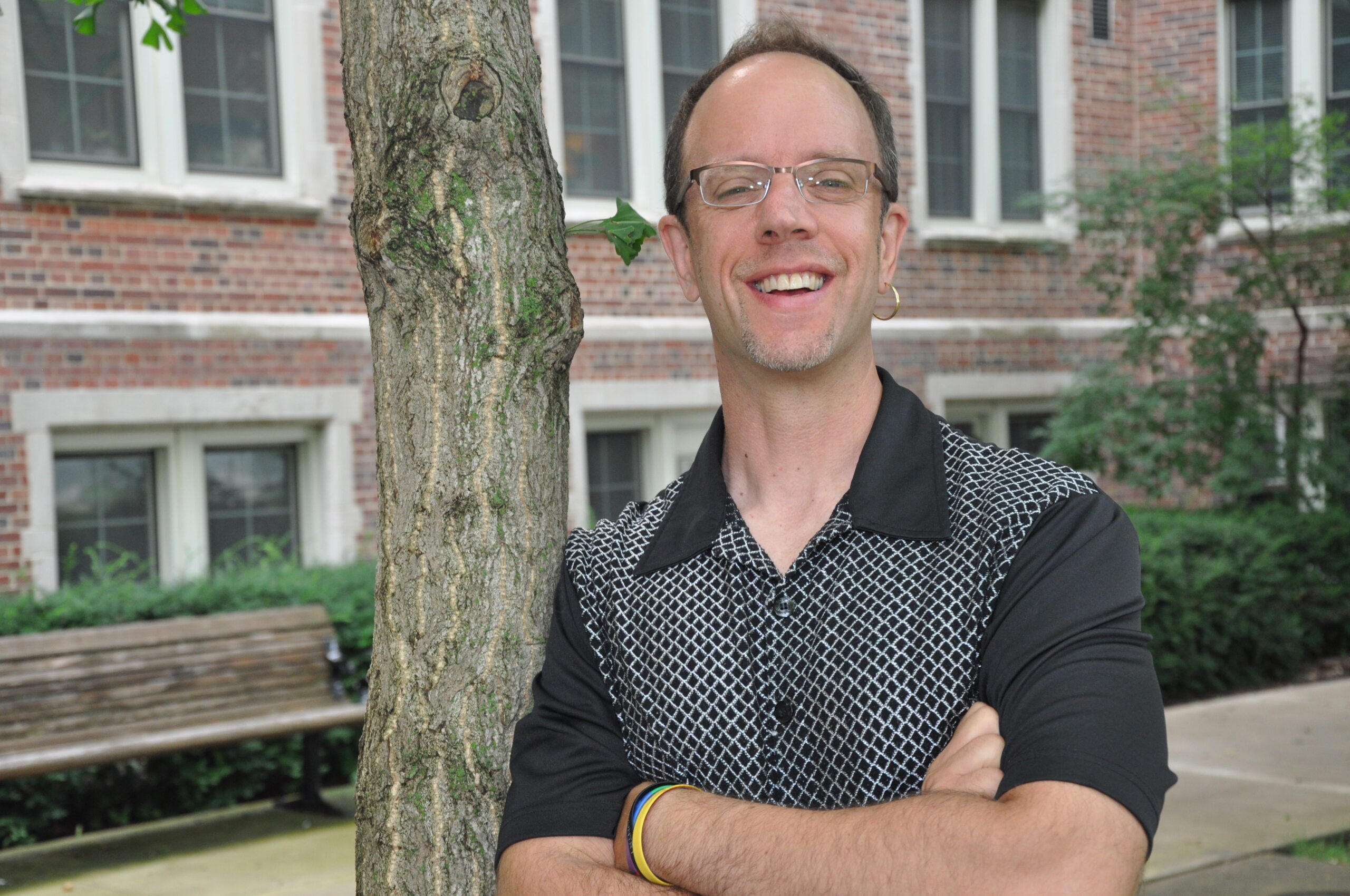
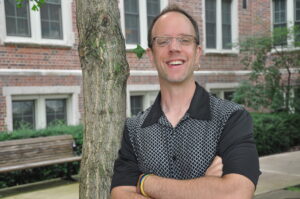 We are in a time of significant legislative challenge focused on Iowa citizens who are transgender/non-binary (TGNB). Recent changes to Iowa law include, amongst several actions, prohibiting youth who are TGNB from accessing gender affirming medical care. This creates challenges for psychologists who work with youth who are TGNB and their family and friends.
We are in a time of significant legislative challenge focused on Iowa citizens who are transgender/non-binary (TGNB). Recent changes to Iowa law include, amongst several actions, prohibiting youth who are TGNB from accessing gender affirming medical care. This creates challenges for psychologists who work with youth who are TGNB and their family and friends.
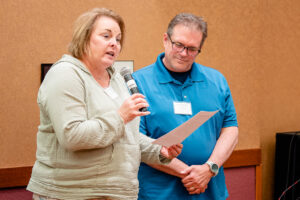 You know that a candidate is deserving of an award when two fellow psychologists both decide to nominate her at the same time. That was the case this year when both Dr. Bethe Lonning and Dr. Warren Phillips submitted nominations for Dr. Sally Oakes Edman. Their nomination letter:
You know that a candidate is deserving of an award when two fellow psychologists both decide to nominate her at the same time. That was the case this year when both Dr. Bethe Lonning and Dr. Warren Phillips submitted nominations for Dr. Sally Oakes Edman. Their nomination letter: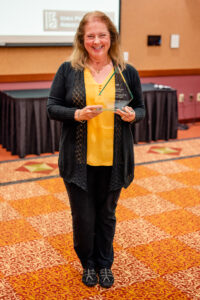 The summer after my junior year in college, I decided I should use my psychology major to become a clinical psychologist. I was 20 years old, and had never met a clinical psychologist.
The summer after my junior year in college, I decided I should use my psychology major to become a clinical psychologist. I was 20 years old, and had never met a clinical psychologist.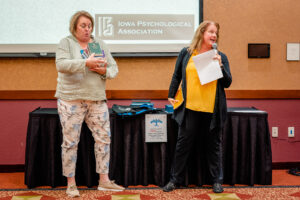 A year or two after I joined IPA, I attended a conference, since I really needed the continuing education, and as this was around the time we got our first EVER computers in our offices and were being trained on how to use a new thing called “email”, there was no remote CE option. Attending was tricky, though, because I was nursing my baby daughter, and couldn’t be away from her overnight. So I recruited my husband to come along and wrangle three little kids in a hotel room in Des Moines, and deliver my baby to me at the right times so I could nurse her. My plan was to do this while looking not like a young nursing mama, but like a mature, knowledgeable professional in this room full of older men. This was in the days of a very popular TV commercial – everyone watched the same four channels in those days – involving a sexy woman wearing a business suit and high heels singing to striptease-type music “I can bring home the bacon, fry it up in a pan, and never let him forget that he’s a man.” What a message – I can earn the money, do the housework, and still be the sexy little woman upholding my man’s masculine ego. Women were working like crazy to show that we could do it all. Ourselves. Without help.
A year or two after I joined IPA, I attended a conference, since I really needed the continuing education, and as this was around the time we got our first EVER computers in our offices and were being trained on how to use a new thing called “email”, there was no remote CE option. Attending was tricky, though, because I was nursing my baby daughter, and couldn’t be away from her overnight. So I recruited my husband to come along and wrangle three little kids in a hotel room in Des Moines, and deliver my baby to me at the right times so I could nurse her. My plan was to do this while looking not like a young nursing mama, but like a mature, knowledgeable professional in this room full of older men. This was in the days of a very popular TV commercial – everyone watched the same four channels in those days – involving a sexy woman wearing a business suit and high heels singing to striptease-type music “I can bring home the bacon, fry it up in a pan, and never let him forget that he’s a man.” What a message – I can earn the money, do the housework, and still be the sexy little woman upholding my man’s masculine ego. Women were working like crazy to show that we could do it all. Ourselves. Without help.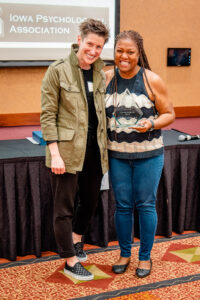 Upon joining IPA, Dr. Goins-Fernandez quickly got involved in leadership. She was instrumental in the development of our Diversity and Social Justice Committee (DJSC) in 2016. She chaired or co-chaired the committee until April of 2022. Under her leadership, the DJSC’s membership increased by more than 100%, and she welcomed many student IPA members to the committee. Dr. Goins-Fernandez’s leadership style is collaborative and empowering. In her role as DSJC chair, she regularly invited and encouraged contributions from committee members. By sharing her vision and setting clear expectations, she empowered others to do their part to promote EDI efforts within IPA. She successfully argued for a clause in all speaker contracts requiring presenters to discuss EDI aspects of their topics; this initiative was approved by our Executive Council. Dr. Goins-Fernandez was a key voice in creating and updating our Social Justice Policy that delineates procedures for how IPA addresses social justice issues and in adding a statement to our website that communicates the association’s commitment to EDI. Other than our Membership Committee, no other committee engages our members more frequently. The DSJC provides members with educational content, including formal continuing education training events and informal postings to our E-list. Dr. Goins-Fernandez has organized multiple presentations by experts in the field including Dr. Melba Vasquez (cultural competence and ethics), Dr. Sherry Wang (combating anti-Asian hate), Dr. Erin Alexander (racial reconciliation), and Dr. Erin Andrews (disability awareness and ethics). She and the DSJC created a Graduate Student Diversity and Social Justice Award to recognize IPA student members for community-based social justice projects. She also started the DSJ Book and Film Club, in which IPA members read books or watch films on EDI topics. Some of the books discussed have included “How to be an Anti-Racist” by Dr. Ibram X. Kendi, “Minor Feelings: An Asian American Reckoning” by Cathy Park Hong, and “Sissy: A Coming of Gender Story” by Jacob Tobia; film titles include “13th” and “Katrina Babies.”
Upon joining IPA, Dr. Goins-Fernandez quickly got involved in leadership. She was instrumental in the development of our Diversity and Social Justice Committee (DJSC) in 2016. She chaired or co-chaired the committee until April of 2022. Under her leadership, the DJSC’s membership increased by more than 100%, and she welcomed many student IPA members to the committee. Dr. Goins-Fernandez’s leadership style is collaborative and empowering. In her role as DSJC chair, she regularly invited and encouraged contributions from committee members. By sharing her vision and setting clear expectations, she empowered others to do their part to promote EDI efforts within IPA. She successfully argued for a clause in all speaker contracts requiring presenters to discuss EDI aspects of their topics; this initiative was approved by our Executive Council. Dr. Goins-Fernandez was a key voice in creating and updating our Social Justice Policy that delineates procedures for how IPA addresses social justice issues and in adding a statement to our website that communicates the association’s commitment to EDI. Other than our Membership Committee, no other committee engages our members more frequently. The DSJC provides members with educational content, including formal continuing education training events and informal postings to our E-list. Dr. Goins-Fernandez has organized multiple presentations by experts in the field including Dr. Melba Vasquez (cultural competence and ethics), Dr. Sherry Wang (combating anti-Asian hate), Dr. Erin Alexander (racial reconciliation), and Dr. Erin Andrews (disability awareness and ethics). She and the DSJC created a Graduate Student Diversity and Social Justice Award to recognize IPA student members for community-based social justice projects. She also started the DSJ Book and Film Club, in which IPA members read books or watch films on EDI topics. Some of the books discussed have included “How to be an Anti-Racist” by Dr. Ibram X. Kendi, “Minor Feelings: An Asian American Reckoning” by Cathy Park Hong, and “Sissy: A Coming of Gender Story” by Jacob Tobia; film titles include “13th” and “Katrina Babies.” 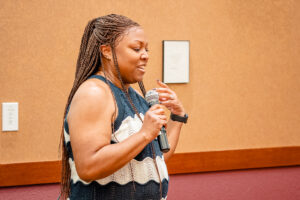 Dr. Goins-Fernandez has made a significant impact on IPA, and our organization is better and stronger for it. There is no doubt that she has helped Iowa psychologists provide more effective and safer care to Iowans who have experiences and identities that differ from their own by spearheading programming to expand their multicultural awareness, knowledge, and skills. It is for these reasons and more that I believe she is deserving of IPA’s Diversity Leadership award.
Dr. Goins-Fernandez has made a significant impact on IPA, and our organization is better and stronger for it. There is no doubt that she has helped Iowa psychologists provide more effective and safer care to Iowans who have experiences and identities that differ from their own by spearheading programming to expand their multicultural awareness, knowledge, and skills. It is for these reasons and more that I believe she is deserving of IPA’s Diversity Leadership award.




 Bisexuality Awareness Week is occurring this year September 17-24. This is the 24th year of Bi Visibility Day which has been celebrated on the 23rd of September since its inception in 1999. Bisexuality refers to sexual attraction to those who are of the same/similar gender and to those who are of a different gender. The bisexual community faces an ongoing invisibility issue even within the LGBTQAI+ community. This invisibility is referred to as bisexual erasure and reflects the dismissal, minimization, omission, overlooking of bisexual experiences. Bisexual people face greater health disparities in some areas compared to their lesbian and gay counterparts. There are several reasons for this. One is that bisexual folks may not feel they belong in LGBTQ spaces (because they aren’t “gay enough”) and don’t feel they fit in heterosexual spaces (because they are “straight enough”), which negatively impacts mental health. Another reason relates to healthcare providers forgoing important health screenings and tests based on the gender of their bisexual patients’ partners. For example, a physician may not think it is important to screen a bisexual woman for sexually transmitted infections if they know the patient is partnered with a woman.
Bisexuality Awareness Week is occurring this year September 17-24. This is the 24th year of Bi Visibility Day which has been celebrated on the 23rd of September since its inception in 1999. Bisexuality refers to sexual attraction to those who are of the same/similar gender and to those who are of a different gender. The bisexual community faces an ongoing invisibility issue even within the LGBTQAI+ community. This invisibility is referred to as bisexual erasure and reflects the dismissal, minimization, omission, overlooking of bisexual experiences. Bisexual people face greater health disparities in some areas compared to their lesbian and gay counterparts. There are several reasons for this. One is that bisexual folks may not feel they belong in LGBTQ spaces (because they aren’t “gay enough”) and don’t feel they fit in heterosexual spaces (because they are “straight enough”), which negatively impacts mental health. Another reason relates to healthcare providers forgoing important health screenings and tests based on the gender of their bisexual patients’ partners. For example, a physician may not think it is important to screen a bisexual woman for sexually transmitted infections if they know the patient is partnered with a woman. 


 June 19, is celebrated as “Juneteenth,” in honor of one of the final acts of emancipation of slaves in the United States. On June 19, 1865, the announcement was made that tens of thousands of African-Americans in Texas had been emancipated. Juneteenth traces its origins back to Galveston, Texas where on June 19, 1865, Union soldiers, led by Major Gen. Gordon Granger landed in the city with news that the Civil War had ended and slaves were now free. The announcement came two-and-a-half years after President Lincoln’s Emancipation Proclamation of January 1, 1863 that had ended slavery in the U.S. However, since that proclamation was made during the Civil War, it was ignored by Confederate states and it wasn’t until the end of the war that the Executive Order was enforced in the South. This day is also known as African American Freedom Day or Emancipation Day.
June 19, is celebrated as “Juneteenth,” in honor of one of the final acts of emancipation of slaves in the United States. On June 19, 1865, the announcement was made that tens of thousands of African-Americans in Texas had been emancipated. Juneteenth traces its origins back to Galveston, Texas where on June 19, 1865, Union soldiers, led by Major Gen. Gordon Granger landed in the city with news that the Civil War had ended and slaves were now free. The announcement came two-and-a-half years after President Lincoln’s Emancipation Proclamation of January 1, 1863 that had ended slavery in the U.S. However, since that proclamation was made during the Civil War, it was ignored by Confederate states and it wasn’t until the end of the war that the Executive Order was enforced in the South. This day is also known as African American Freedom Day or Emancipation Day.